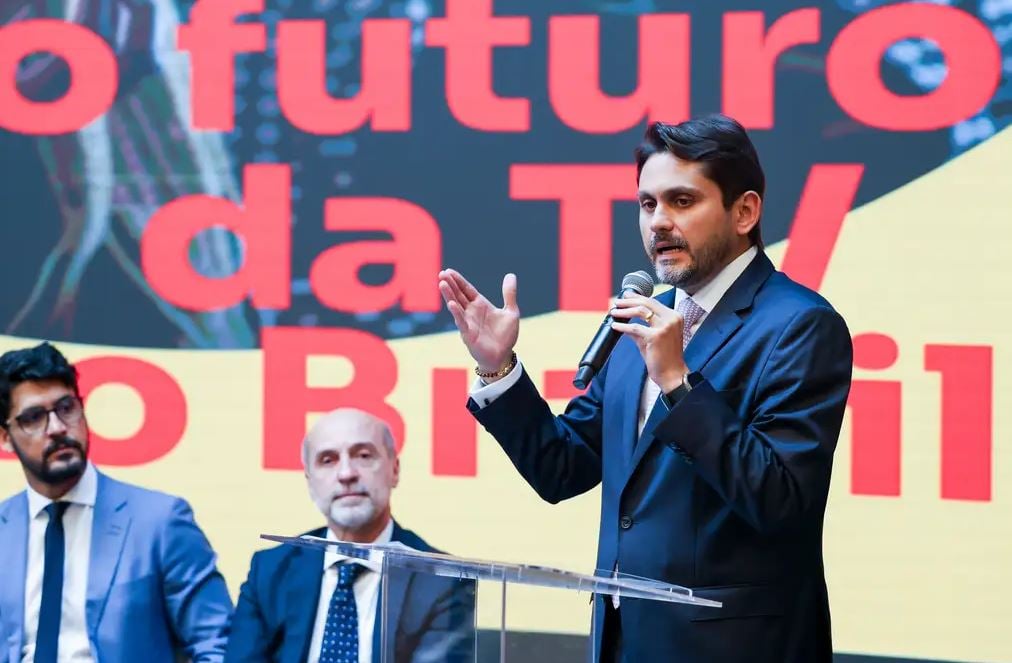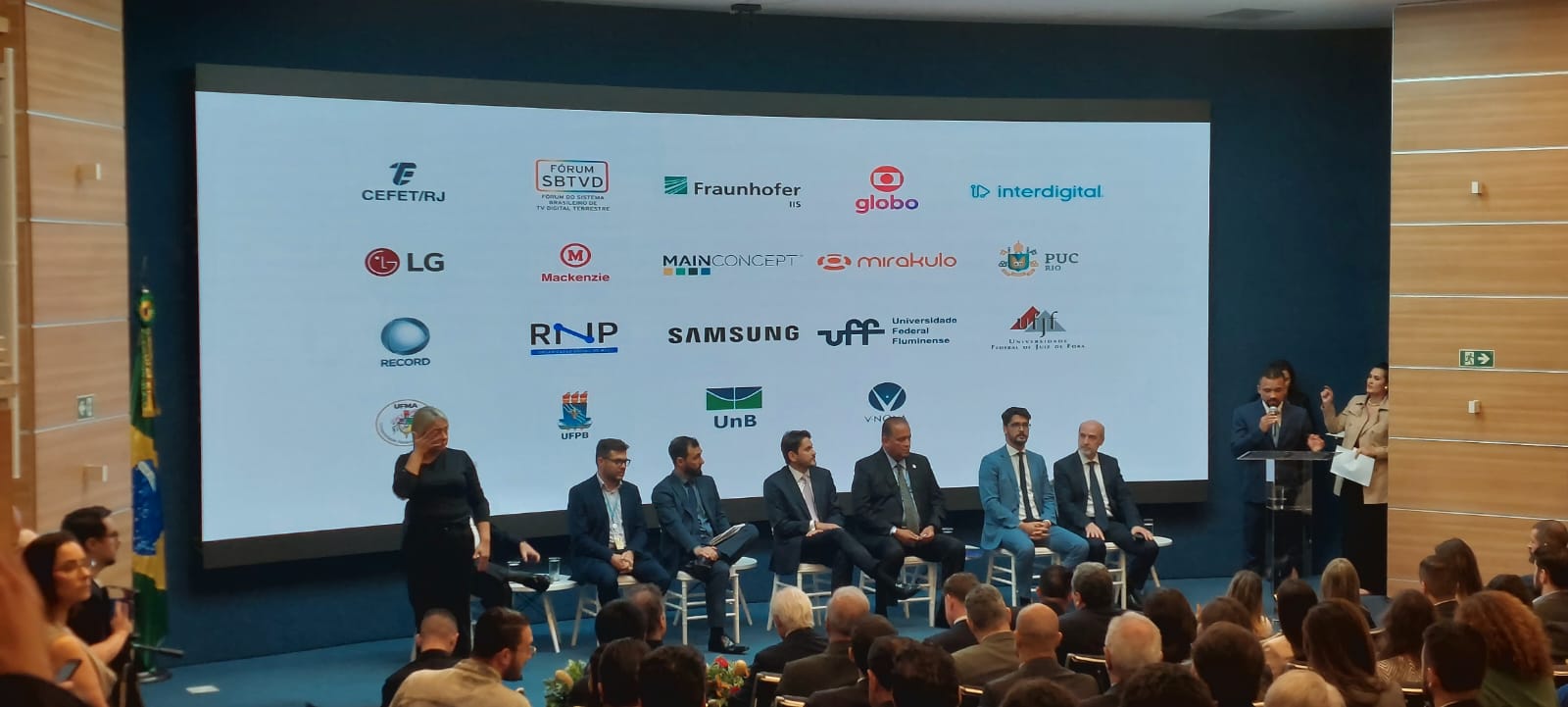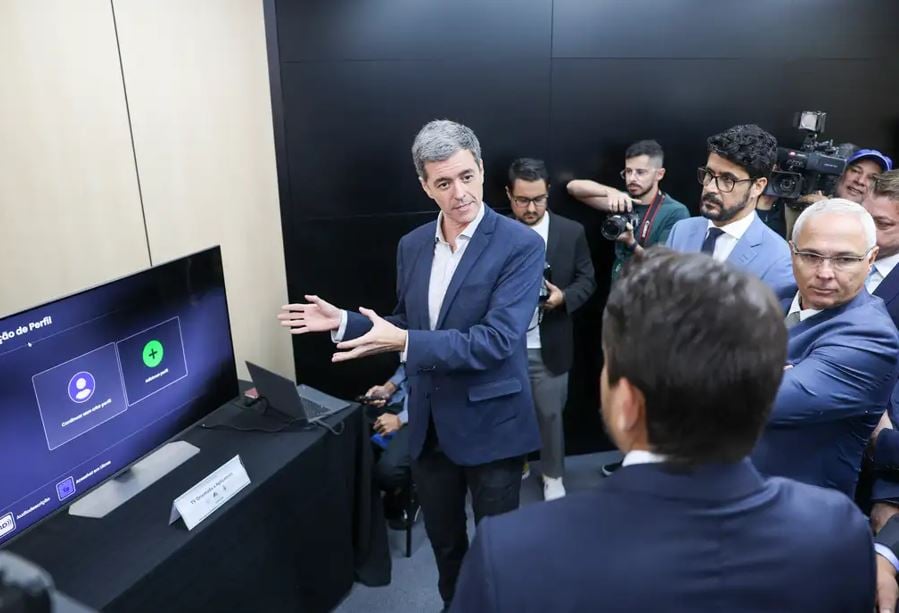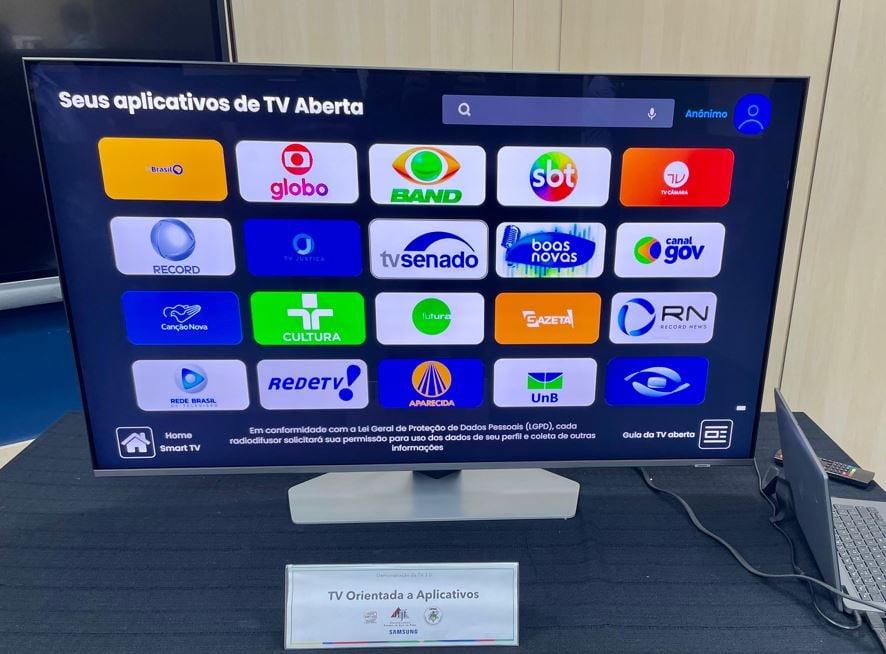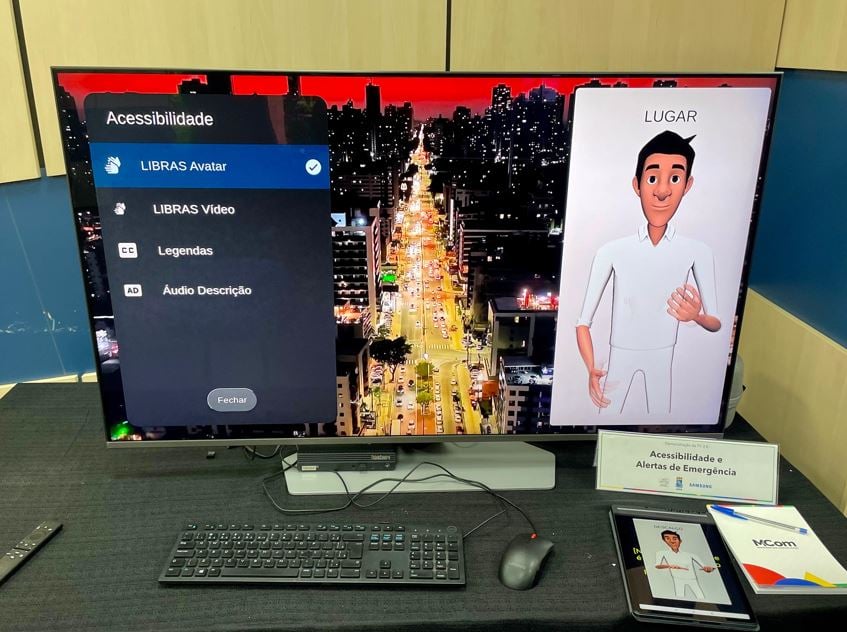RNP participates in seminar to present the first results of the TV 3.0 project
The seminar promoted by the Ministry of Communications (MCom), on April 3 and 4, brought together in Brasília industry, broadcasters, and researchers responsible for the evolution of the Brazilian Digital TV System for a partial demonstration of the results after a year of work and with implementation scheduled for next year.
The MCom chairs the TV 3.0 WG, created by Decree No. 11,484, published in April 2023, which establishes the guidelines for the new technology and guarantees the availability of radio frequency spectrum for its implementation. The work agenda includes defining new technologies and carrying out tests during the third phase of TV 3.0 planning, coordinated by the Brazilian Digital TV System Forum (SBTVD), sponsored by the MCom and supported by RNP for the execution of research and tests.
TV 3.0 will be implemented in 2025, with the aim of improving transmission, audio, video and viewing experience, integrating broadcasting and broadband, thus seeking to keep broadcast television up to date and relevant to the Brazilian population.
Present at the opening ceremony of the event, the Minister of Communications, Juscelino Filho, highlighted the great impact that the new standard will have on society.
“We are facing one of the most anticipated revolutions in the sector, which is even more significant than what we have experienced in the transmission from analog to digital. It is the future of TV in Brazil. In practice, it is the definitive integration between free and open television and the internet. All the developments in image and sound will be available on open TV for the population. The interactivity, with the internet, that will be possible is an additional tool, but it does not mean that the population needs to have internet to have access to TV 3.0”, he stated.
Quality and interactivity in focus
Navigation will be more interactive, and will now be done only through apps, abandoning the current system of numbers. This will allow channels to offer, in addition to what is already broadcast live on open signal, additional content on demand, such as series, games, programs and many other possibilities.
Image quality will increase by at least four times. The current standard, which is Full HD Digital TV, will now be broadcast over the air in up to 4k, or up to 8k if viewed over the internet. This means that the image will have at least four times more pixels, providing more information per space, improving color and sharpness. Contrast will also be improved through HDR (High Dynamic Range) technologies.
With immersive sound, the technology will allow viewers to feel as if they are in the environment they are watching. For example, viewers can choose between hearing only the singer's microphone with the band or highlighting the sound of the audience.
In addition, it will be possible to customize the themes and advertisements available on your channels, with the aim of improving the experience for the viewer. The migration to the new standard should be gradual, possibly starting in large cities.
“The changes that occur in our sector always place us at crucial moments. Today, we are going through another key stage of digital transformation and the evolution of TV 3.0 is a concrete example that technology and the internet are our allies in this process”, highlighted Flávio Lara Resende, president of the Brazilian Association of Radio and TV Broadcasters (Abert).
RNP Contribution
Hired by MCom via the 13th Amendment to the Management Contract, signed in December 2022, RNP is responsible for executing the current development phase of TV 3.0, which has been under development since January 2023 and will continue until October of this year.
During the work, 63 pieces of equipment were acquired to equip the laboratories of the seven universities involved in the project developed by around 80 researchers. It also enabled them to participate in four events, with three round tables and 15 panels on the topic.
Furthermore, RNP also contributed to identifying new research agendas to be developed in the context of TV 3.0, continuing current work and contributing to the immediate insertion of public TVs (members of the RNP System) in the new technology.
“RNP created this collaboration network in Digital TV during the transition from Analog TV, about 15 years ago, in the context of the CTICs project. Now, this experience and expertise are being used to contribute to the completion of a huge amount of work in a very short space of time, where we were able to make contributions beyond the original agenda, which are mainly reflected in the user experience proposals or, in this case, the viewer”, explained Adriano Adoryan, solutions manager responsible for the cooperation.
Public Communication
The president of Empresa Brasil de Comunicação (EBC), Jean Lima, highlighted, during the event, the importance of the sector's union so that Digital TV can evolve and reach the entire Brazilian population.
“It is important to ensure that all open channels remain on TV 3.0 and that public or state channels remain. Because 70% of the Brazilian population gets their information through this means of communication. And that requires investment from the Brazilian State, the Executive, Judiciary and Legislative branches,” highlighted Jean Lima. “For the public sector, TV 3.0 represents the possibility of including new actors and democratizing communication,” he stated.
According to Jean, EBC has participated in the entire debate process on the acquisition of new technologies for TV 3.0, with the Secretariat of Communication of the Presidency of the Republic (Secom) and the MCom, which coordinates the initiative. The intention is to guarantee equality in the distribution of channels and give viewers freedom of choice.
According to EBC's general director, Maíra Bittencourt, the new Digital TV will help bring together different public communication vehicles, including those linked to the National Public Communication Network (RNCP), coordinated by EBC.
“I am referring to state TV stations; TV stations linked to state, municipal and federal universities; and federal institutes. I see here a massive presence of partners linked mainly to educational institutions, which have at their core this concern for education, culture and technological development. They contribute not only in the field of communication – in broadcasting – but also in the development of the technologies that allow us to do this”, argued the director.
During the seminar, the Minister of Communications also signed a concession agreement for 28 new broadcasters, bringing the total to 100 new radio or TV channels for the RNCP.
Digital inclusion
Asked about how TV 3.0 could contribute to the digital inclusion of the low-income population, Maíra said that this is also a challenge to be faced, including with a view to greater integration of public services.
“We raised this possibility through the SouGov space. There is the possibility of integrating it, the TV registry and also the service registry so that it is possible to have access, through the television screen, to services that today are still difficult to access through mobile devices in low-income communities,” she emphasized.
Opportunities
Telecommunications engineer at the Chamber of Deputies, Carlos Neiva said that TV 3.0 will bring a series of opportunities for public communication vehicles.
“In addition to expanding the reach, it will enable the creation of new channeling ranges, as well as the targeting of public policies in the most diverse areas,” he said, referring especially to the areas of health and education. “But for this to happen, as Maíra said, it will be necessary to guarantee a CDN structure. Only then will we be accessible to everyone,” said the engineer, emphasizing that “efficient investment of resources and public policies are also necessary to enable access to the new receivers,” he concluded.
*With information from Agência Gov/MCom and Agência Brasil/EBC
Check out the full seminar:
Day 1:
Day 2:
